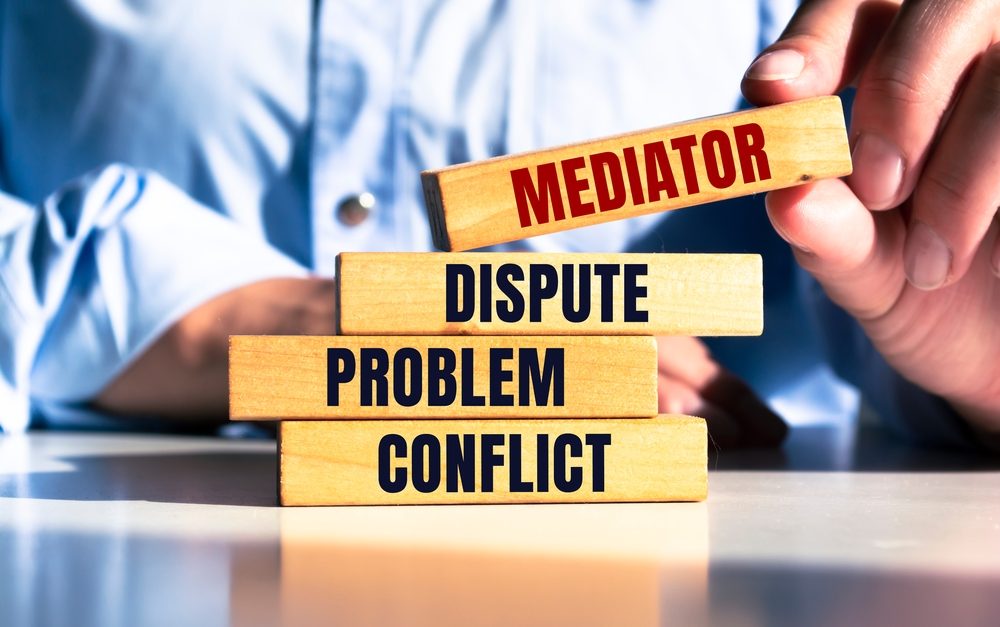
 08 September 2025
08 September 2025
Divorce can be one of the most emotionally taxing experiences in a person’s life—but it doesn’t always have to be a fight in a courtroom. Many couples today are choosing Alternative Dispute Resolution (ADR) methods to navigate their separation in a more respectful, efficient, and cost-effective manner.
At Enright Family Law in San Diego, we specialize in helping modern families resolve conflict with less confrontation and more collaboration. As family dynamics continue to evolve, so too must the way we handle legal disputes. Whether you're part of a blended family, a same-sex couple, or navigating co-parenting in a non-traditional relationship, ADR methods can provide a path forward that prioritizes your family's values and future.
What is Alternative Dispute Resolution (ADR)?
Alternative Dispute Resolution refers to a range of processes that allow couples to resolve their divorce and related issues outside of court. Instead of relying on a judge to make decisions, ADR allows spouses to work together—often with the support of trained professionals—to come to mutually agreeable solutions.
The key benefits of ADR methods include:
- Lower legal costs
- Faster resolution times
- Greater privacy and confidentiality
- Reduced emotional stress
- More control over the outcome
ADR is especially effective for couples who are open to dialogue and wish to preserve a respectful relationship, particularly when children are involved.
Common ADR Methods in Divorce Cases
There are several types of ADR available in California, each suited to different levels of cooperation and complexity. Here are the most common methods:
1. Mediation
Mediation is one of the most widely used forms of ADR in family law. In this process, a neutral third party—the mediator—facilitates discussions between the divorcing spouses. The mediator does not take sides or make decisions but helps both parties reach a voluntary agreement on issues such as child custody, property division, and spousal support.
Mediation is ideal when both spouses are willing to communicate openly and compromise. It also allows for creative solutions that a court may not offer.
2. Collaborative Divorce
Collaborative divorce is a structured process where each spouse hires a specially trained attorney, and all parties commit to resolving disputes without litigation. The team may also include other professionals, such as financial advisors, child specialists, or therapists.
Everyone involved signs an agreement stating that if the process breaks down and goes to court, the collaborative attorneys will withdraw. This encourages everyone to remain committed to finding a peaceful resolution.
Collaborative divorce works well for couples who want legal support while still maintaining control and civility throughout the process.
3. Arbitration
In arbitration, a private, neutral third party—called an arbitrator—acts similarly to a judge. The divorcing couple presents their arguments and evidence, and the arbitrator makes binding decisions on the disputed issues.
Arbitration can be faster and more private than court litigation, but the downside is that you are giving decision-making power to someone else. It’s often used in high-conflict divorces where agreement seems unlikely but the parties still want to avoid court.
4. Private Judging
California allows parties to hire a private judge—often a retired family law judge—to hear their case outside the public court system. Private judging is legally binding and offers faster scheduling, more privacy, and more attention to your case.
This option is often used in high-asset divorces or when confidentiality is a priority.
5. Negotiated Settlement
Not all ADR methods require formal procedures. In many cases, spouses (with or without their attorneys) can reach a negotiated settlement through informal discussions. These negotiations may be conducted in person, via email, or with the help of legal counsel.
While simple, negotiated settlements still require legal oversight to ensure agreements are valid and enforceable.
Choosing the Right ADR Method for Your Divorce
Each divorce is unique, and the right ADR method depends on several factors:
- Level of communication and trust between spouses
- Complexity of finances and custody arrangements
- Desire to co-parent effectively
- Need for privacy
- Urgency of resolution
Some couples begin with mediation and, if it breaks down, move to collaborative divorce or arbitration. Others may try informal negotiations with backup plans in place. The flexibility of ADR allows for hybrid approaches based on what works best for your situation.
Are ADR Methods Legally Binding?
Yes, many ADR agreements—especially those resulting from mediation or collaborative law—can become legally binding once formalized and approved by the court. Once signed by both parties and entered into a court order, they carry the same legal weight as a ruling by a judge.
This gives families the benefit of formal resolution without the stress and expense of litigation.
Why ADR Matters for Modern Families
In today’s world, the definition of family is broader and more diverse than ever before. Divorce affects not only traditional nuclear families but also LGBTQ+ couples, unmarried co-parents, blended families, and partnerships with unique structures.
ADR methods give modern families the ability to resolve issues with dignity, respect, and forward-thinking solutions. Rather than force your story into the rigid structure of a courtroom, ADR allows you to create an agreement that reflects your values, lifestyle, and vision for the future.
At Enright Family Law, we understand that your family doesn't look like everyone else's—and your divorce process shouldn’t either.
How We Can Help
At Enright Family Law, we are committed to helping San Diego families resolve their divorces with compassion, intelligence, and minimal conflict. We guide our clients through a wide range of alternative dispute resolution methods, including mediation, collaborative divorce, and negotiated settlements.
Our approach is tailored to modern families who seek peaceful resolutions without sacrificing their legal rights. Whether you're just beginning the divorce process or looking for a way to finalize terms without going to court, we can help you find the ADR method that fits your unique situation.
Let us support you in turning a difficult chapter into a healthier new beginning. Reach out today to schedule a consultation with our team.

